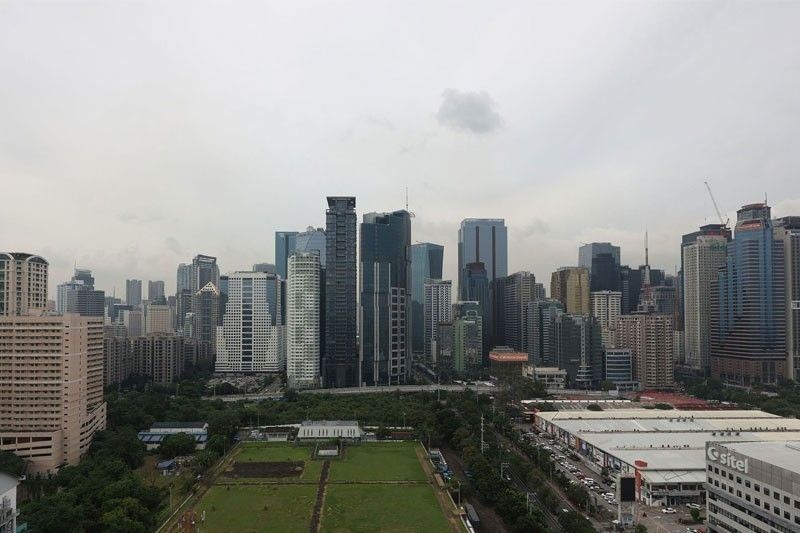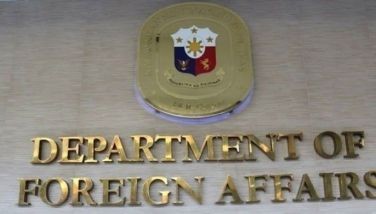EO signed to adopt Philippine Development Plan

MANILA, Philippines — President Marcos has approved the Philippines’ economic recovery roadmap for the next six years and urged state agencies and other sectors to work together to achieve an inclusive economy that is responsive to the daily struggles of ordinary Filipinos.
Through Executive Order No. 14 signed on Jan. 27, President Marcos approved and adopted the Philippine Development Plan for 2023 to 2028.
The plan aims to “bring back the country to a high-growth trajectory” and to “enable economic and social transformation for a prosperous, inclusive and resilient society.”
The plan is anchored on AmBisyon Natin 2040, a 25-year plan that envisions a prosperous, high-trust, and middle class Philippine society, where the people are healthy and educated, among other goals.
The plan also contains strategies and policies aimed at achieving the goals of the 2030 Agenda for Sustainable Development; Marcos’ eight-point socioeconomic agenda, which aims to reinvigorate job creation and accelerate poverty reduction while addressing the issues brought by the pandemic; and the 2022-2028 medium-term fiscal framework.
At a forum on the Philippine Development Plan in Pasay yesterday, Marcos said the roadmap represents “not only our aspirations as a people but also our resolve to build a nation that we can all be truly proud of.”
He noted that the goal of the plan is to “reinvigorate job creation and accelerate poverty reduction by steering the economy back on the high-growth path and effect economic transformation.”
“It is a plan that will set the Philippines towards becoming an upper-middle income country by the year 2025,” the President said.
“These are truly bold plans but I have the confidence in the minds of those who will become our partners in realizing this vision contained in this document and faith in the capacity of our people,” he added.
Marcos reminded agencies that the government’s performance would be gauged by the way it dealt with the issues of ordinary Filipinos.
“Indeed, we look towards the future with hope, with optimism. But our gaze can only go as far as what we have done to unburden the life of the ordinary Filipino,” Marcos said.
“We can talk about economic policies and obscure numbers and data as long as we want to. But it is the life of the ordinary Filipino, more than just the numbers and the realm of data and statistics. It is something that is deeply personal to all of us. It is something that we know requires action,” he added.
Deeper struggles
Marcos said the struggles of Filipinos run deeper than the bigger and macro problems that the government encounters.
“Their struggles are embedded in their respective daily battles: How do I make ends meet? How can I bring food to the table? What is my future going to look like? Will my children live in a better Philippines than the one that I grew up in?” the President said.
“Ladies and gentlemen, it is my firm belief that answering these questions will be the defining challenge for us who are called to serve and will be the barometer through which the government will be measured. I have great optimism as we set to implement the key points in our PDP (Philippine Development Plan) from this day moving forward,” he maintained.
Marcos said the regional development councils, the highest policy-making body governing the 17 regions in the Philippines, now play a more significant role under the Philippine Development Plan.
“Their role in all of the economic planning of NEDA (National Economic and Development Authority) and the country’s economy in general is going to be expanded and that will give voice to the local governments... to point out to the national government the needs in their areas,” he said.
The President also emphasized the need for the government to strengthen its ties with the private sector, saying the success of the nation “lies in all of us working together.”
“Together, let us channel our energies in creating an economy that works for everyone and gives every Filipino, no matter their circumstances, a better life. With your support, I am confident that we will be defined not by the challenges that we face, but by the better days and the better future that we have brought,” he added.
The Philippine Development Plan for 2023 to 2028 was approved by the NEDA Board last Dec. 16 following a series of Cabinet-level and technical inter-agency discussions and stakeholders consultation.
All national government agencies and offices, government-owned or controlled corporations, state-run financial institutions and instrumentalities, government corporate entities, state universities and colleges, and local governments were directed to adopt and disseminate the Philippine Development Plan and to align their budgets and programs with its strategies and activities.
The public investment program for the next six years shall be completed by the first quarter of this year and updated annually or when deemed necessary by the NEDA, the order said.
- Latest
- Trending
































